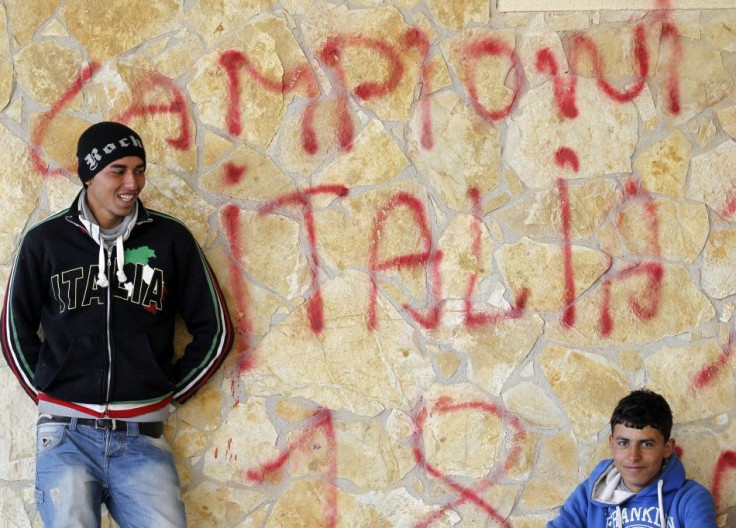North African migrants continue to pour into Italy

In response to the large numbers of North Africans continuing to swarm into the tiny Italian island of Lampedusa in the Mediterranean, local fishermen have barricaded the entrance of to the harbor with seagoing vessels seized from the migrants in order to stop anymore boats from coming ashore.
The seemingly endless stream of illegal immigrants – mostly young men fleeing the violence and political turmoil in Tunisia and Libya – has prompted hostility from Italians both on the island and the mainland.
Over the past three days, about 3,700 more migrants have arrived on the island (which normally holds only 5,000 residents). At least 15,000 other migrants have arrived since mid-January when the president of Tunisia Zine El Abidine Ben Ali was deposed.
The makeshift shelters are already filled; overflow are occupying docks or temporary camps.
Feeling swamped, protesters on Lampedusa held up banners which read: Enough, we're full,” according to Al Jazeera.
Now there are fears that the civil war in Libya will unleash even more migrants to Lampedusa, which is south of Sicily, and much closer to Africa than Europe.
Fishermen and residents of the island are blocking the port with a number of boats which they took over after the migrants were disembarked, a police official from Lampedusa told Reuters.
For the moment, some migrant boats (which can be observed by Italian naval officials long before they arrive) are being diverted to another small island nearby, Linosa.
Other boats filled with migrants have also reached the Mediterranean island of Malta.
Meanwhile, the Italian government, which has complained to other European states that it cannot single-handedly handle the huge inflow of people, said it will increase the number of naval transport ships assigned to transfer the migrants from Lampedusa to other detention centers in Italy.
Moreover, the government of Prime Minister Silvio Berlusconi has offered 200 million euros ($281 million) in aid and credit lines to Tunisia to help seal up border controls.
© Copyright IBTimes 2024. All rights reserved.











